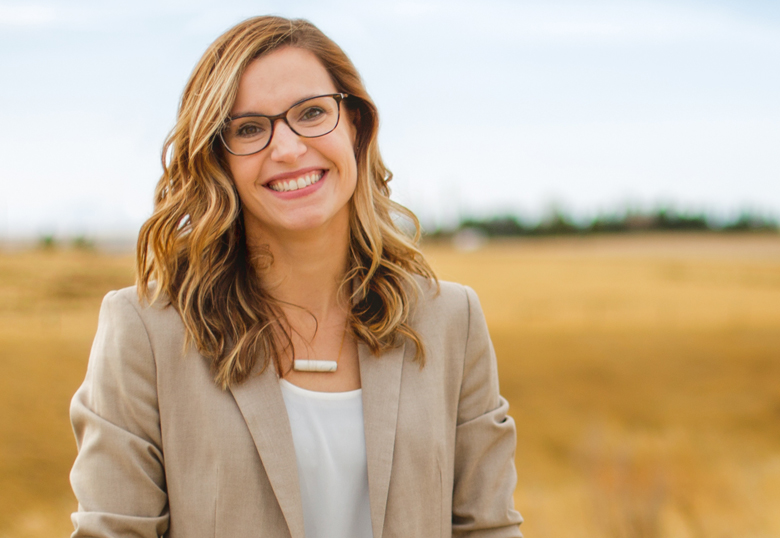When researcher Dr. Julia Brassolotto accompanied her partner, an elementary school teacher, to a small northern Alberta community in 2010, she didn't know the decision would profoundly impact her own career.

At the time, Brassolotto had just begun her PhD studies in Health Policy and Equity at York University in her native Ontario. Soon after moving to the hamlet of Cleardale, though, Brassolotto saw an opportunity to investigate health equity issues from a rural viewpoint — a topic that up until then she had not explored.
Today, Brassolotto is applying the knowledge she gained in rural Alberta, and her doctoral work in rural British Columbia, to her current role as the Alberta Innovates Research Chair in Healthy Futures and Well-being in Rural Settings. Brassolotto, who joined University of Lethbridge in 2016, is also an assistant professor in the Public Health program in the Faculty of Health Sciences.
Focusing on care for older adults in rural Alberta, Brassolotto is using her interdisciplinary expertise as a social scientist and health-services researcher to examine how living in a rural area affects health and health care. Although other researchers have found that rurality exacerbates the effects of other, health-related factors, such as low social-economic status, Brassolotto says rural life also has positive, health-promoting aspects. They include high levels of community engagement, the flexibility of small care teams, and informal support networks that enable people to connect and share their experiences.
It's important, though, to recognize differences among rural communities, says Brassolotto. "Each area has unique strengths, politics, local resources and employers."
To that end, older adults in rural communities aren't the only ones who will benefit from Brassolotto's research. She is also sharing her insight with younger people through her course "Rural Health Issues" and by enabling undergraduate and graduate students to work alongside her as research assistants.
"High-quality, person-centred care is important to me," Brassolotto says. "By improving our understanding of rural health, we can inform policy decisions and ultimately improve care for older adults."
